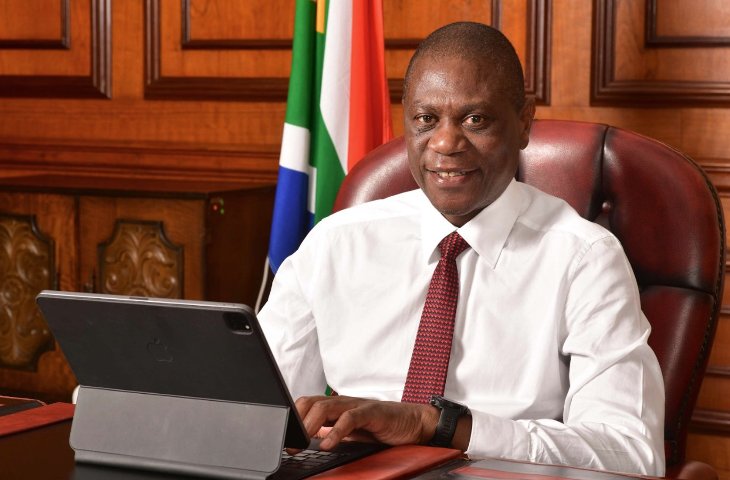Sport as a Unifying Force: Paul Mashatile Calls for Greater Social Cohesion
Despite not being able to attend in person due to pressing national duties, Mashatile reaffirmed his commitment to fostering social unity through platforms like these.

- Country:
- South Africa
Deputy President Paul Mashatile has reinforced the critical role of sports in uniting communities and fostering social cohesion in South Africa. Addressing the Eastern Cape Social Cohesion Dialogue via video link on Tuesday, Mashatile emphasized the transformative power of sports in breaking barriers and strengthening societal bonds.
Mashatile urged South Africans to engage in ongoing dialogues and initiatives that bring communities together. "Building a socially cohesive society requires a dedicated effort to promote positive social relationships that unite us," he stated, calling for active participation in community-building efforts.
Driving Transformation in Sports
The Eastern Cape Department of Sports, Recreation, Arts, and Culture hosted the dialogue under the theme “Accelerating Sport Transformation to Level the Playing Field.” The event highlighted the need to promote inclusivity, expand access to resources, and nurture emerging talent both on and off the field.
Despite not being able to attend in person due to pressing national duties, Mashatile reaffirmed his commitment to fostering social unity through platforms like these.
Coinciding with the event was the release of the 2024 South African Social Cohesion Index by the Inclusive Society Institute. The report showed a moderate national cohesion score of 53.3, a slight decline from previous years. However, the North West and Eastern Cape demonstrated improvement, showcasing a positive trajectory.
"I encourage the Eastern Cape to continue this momentum. Strong social cohesion not only builds community resilience but also contributes significantly to economic, social, and political progress," Mashatile added.
Sport as a Tool for Social Change
Highlighting the power of sports in bridging societal divides, Mashatile referenced key historical moments that brought the nation together. He recalled President Nelson Mandela’s iconic presence at a soccer match at Ellis Park Stadium and his memorable gesture of donning the Springbok jersey during the 1995 Rugby World Cup, which played a pivotal role in uniting a previously divided nation.
“These were not just games; they were powerful acts of reconciliation that demonstrated how sports can heal historical wounds and foster national unity,” he remarked.
Beyond unity, Mashatile underscored the role of sports, arts, and culture in addressing pressing social issues, including drug and substance abuse, gender-based violence, racial divisions, and economic inequality.
“We must use these platforms to stand together against societal challenges and ensure the full inclusion of women, children, people with disabilities, and the youth in sports and cultural activities,” he urged.
Human Rights and Inclusivity in Sports
As the country observes Human Rights Month in March, Mashatile emphasized the intrinsic link between sports and human rights values.
“Sport embodies principles of fairness, non-discrimination, respect, and equal opportunities for all. It reaches billions, particularly young people, making it a powerful tool for social change, empowerment, and inclusion,” the Deputy President noted.
With a renewed call to action, Mashatile encouraged South Africans to leverage the power of sports to bridge social divides and build a more united nation. His speech reinforced the need to keep social cohesion at the heart of the country’s future, ensuring that inclusivity and transformation remain key national priorities.
- READ MORE ON:
- Paul Mashatile
- Eastern Cape Social Cohesion Dialogue










